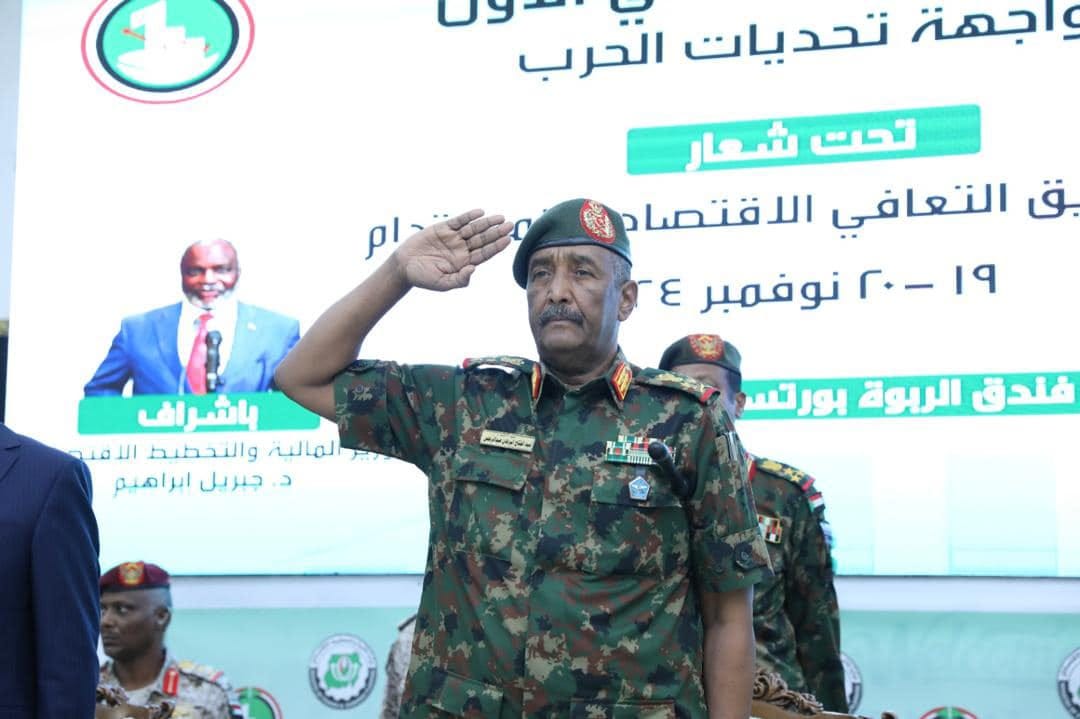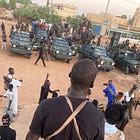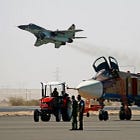Al-Burhan rejects talks with RSF in blow to peace efforts
Hardline stance follows battlefield gains in parts of central Sudan

The commander-in-chief of the Sudanese Armed Forces (SAF), General Abdelfattah Al-Burhan, on Tuesday ruled out negotiations or ceasefire agreements with the paramilitary Rapid Support Forces (RSF). This hardline stance comes just a day after meeting U.S. Special Envoy for Sudan, Tom Perriello, in Port Sudan.
Speaking at the “First Economic Conference” organized by the Ministry of Finance and Economic Planning to address the challenges of the war, Al-Burhan, who is also the head of the ruling military junta, the Transitional Sovereignty Council, vowed to achieve a military victory against the RSF and rejected international pressure for reconciliation.
“We will not negotiate, and we will not agree to a ceasefire unless it is preceded by a complete withdrawal of the rebels from all the areas they have occupied,” Al-Burhan declared in a defiant speech.
The conference brought together key Sudanese leaders, economic experts, and international diplomats to discuss solutions to the economic devastation caused by the war. However, Al-Burhan’s speech dominated the event, as he outlined a firm rejection of any peace talks with what he repeatedly referred to as “rebellious militias” and their alleged foreign backers.
The Sudanese ruler’s rejection comes as a blow to international efforts to broker peace in Sudan. On Monday, U.S. Special Envoy Perriello met with Al-Burhan in what was his first visit to Port Sudan since his appointment in February. The meeting appears to have yielded no immediate progress toward peace, though Perriello highlighted recent progress in opening up new humanitarian corridors.
Sudanese foreign ministry undersecretary Omar Issa said Perriello’s meeting with Al-Burhan discussed a roadmap for ending the war, ensuring humanitarian aid reaches those who need it, and efforts to rebuild social cohesion. Issa further reported Perriello made proposals which Al-Burhan accepted, without specifying the nature of these proposals.
Al-Burhan’s remarks expose the difficulty faced by mediators in bringing the warring parties to a negotiated settlement and underscore an entrenched resistance to such overtures.
Since the outbreak of hostilities in April last year, Sudan has been plunged into a devastating war between the SAF and the RSF. The conflict has displaced millions, killed thousands, and exacerbated an already dire humanitarian crisis. Both sides have been accused of committing human rights violations, with the RSF facing allegations of systematic violence, including massacres and sexual violence, particularly in Darfur. The SAF has been accused of airstrikes against civilians and also targeting western and southern Sudanese in areas under its control in the country’s interior.
In his speech, Al-Burhan praised SAF troops for their “heroic resistance” and vowed to “eliminate the rebels,” describing the RSF as a proxy for foreign powers hostile to Sudan’s sovereignty. “This militia and those who support it have no future in Sudan.”
The war has ravaged Sudan’s economy, with inflation soaring and critical infrastructure destroyed. Al-Burhan acknowledged the immense challenges facing the country but framed the conflict as a necessary step to preserve national sovereignty. “We are fighting not just for today but for the future of Sudan,” he said.
The conference participants, including Finance Minister Dr. Jibril Ibrahim, discussed strategies to stabilize the economy, but Al-Burhan’s speech overshadowed these deliberations. He praised the resilience of Sudan’s private sector and international partners who have provided humanitarian assistance but warned that the country must “solve its problems from within.”
Al-Burhan’s hardline rhetoric marks a departure from recent calls for reconciliation by SAF officials and international mediators. Analysts see his remarks as a signal to both domestic and international audiences, asserting Sudan’s sovereignty while rejecting external influence in its conflict resolution process.




